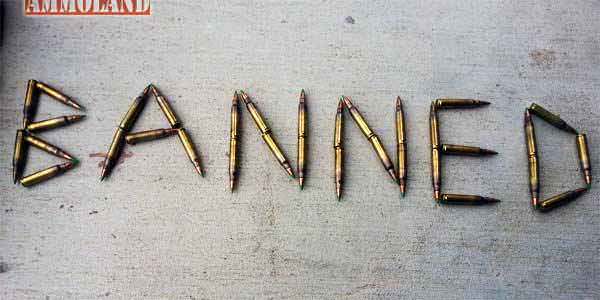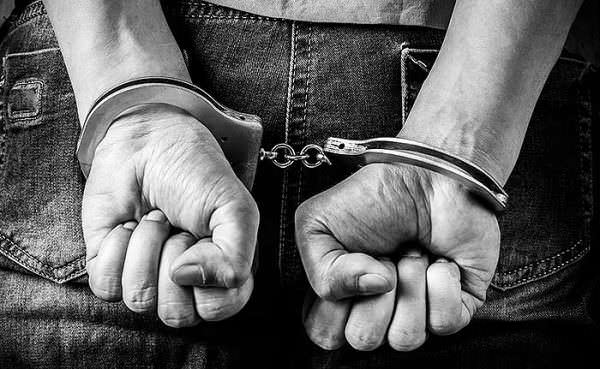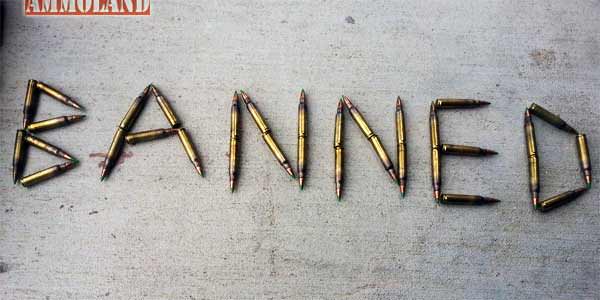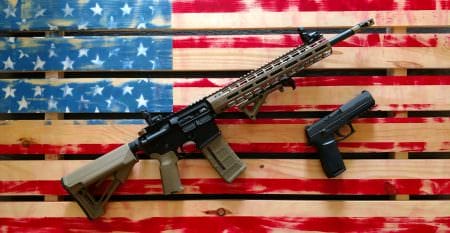
A federal judge recently denied a convicted felon’s request to have their gun possession charge thrown out on constitutional grounds. This ruling should be viewed as disappointing.
Judge Holly A. Brady’s ruling that felons do not have gun rights is a setback for those who believe in the importance of the right to keep and bear arms, even for individuals who have made mistakes in the past.
It is true that there are historical laws that exclude felons from possessing firearms, but that does not necessarily mean that such laws are consistent with the Second Amendment.
The number of crimes now considered to be “felonies” has slowly increased over the decades. The Second Amendment guarantees the right of “the people” to keep and bear arms, and it is not clear that this right is extinguished simply because someone has been convicted of a felony. The language of the Second Amendment does not exclude felons from its protection, and it is concerning that judges are interpreting it that way.
Throughout the USA, there are a variety of non-violent felonies that individuals can be charged with. Once convicted, these individuals are forever barred from possessing the most efficient tool for self-defense. Many of these felony crimes do not involve any acts of violence or threats of future violence and can include:
- White-collar crimes: This category includes financial fraud or deceit, such as embezzlement, money laundering, insider trading, or tax evasion.
- Drug offenses: Certain drug-related crimes, such as drug possession with intent to distribute or drug trafficking, can also be classified as non-violent felonies.
- Environmental crimes: These are offenses that involve violating environmental laws, such as dumping hazardous waste, polluting the air or water, or trafficking in illegal wildlife products.
- Forgery and counterfeiting: These crimes involve creating or altering documents or currency to defraud others, such as forging checks or counterfeiting money.
- Cybercrimes: With the increasing use of technology, certain computer-related offenses, such as hacking, identity theft, or cyberstalking, can be considered as non-violent felonies.
These individuals who made mistakes in the past and successfully completed their punishment, aka ‘did their time,’ seem unlikely to pose a threat to others if they are allowed to own guns.
Does the Punishment Fit the Crime?

Logical arguments can be made that Lifetime bans on felons owning guns are an example of a punishment that does not fit the crime. While it is true that some individuals who have been convicted of felonies have committed violent acts and may pose a risk to society, there are also many non-violent felons who have had their gun rights taken away.
The ruling in United States v. Cummings adds to the long list of over ninety rulings that demonstrate the limited success of convicted felons in claiming Second Amendment protections. Despite last year’s landmark New York State Rifle and Pistol Association v. Bruen, which cast doubt on many modern gun restrictions, felons have had little success convincing courts that the Second Amendment protects their ability to own guns.
As reported by ‘The Reload’;
“Professor Jake Charles of Pepperdine University recently released a report that found there hasn’t been a single successful Second Amendment claim brought against the federal law barring possession of firearms by convicted felons.”
This lack of success is disappointing, especially given that there have been dissenting opinions that questioned the federal lifetime prohibition on at least some, namely non-violent, felons owning guns. Justice Amy Coney Barrett, for example, dissented in favor of restoring the gun rights of a non-violent felon in 2019’s Kanter v. Barr.
Judges should begin to take into consideration the impact of lifetime bans on gun ownership for non-violent felons, as well as the historical and constitutional arguments for and against such bans.
Ultimately, it is essential to remember that the right to keep and bear arms is a fundamental right protected by the Second Amendment, even for those with past crimes. While there may be legitimate reasons to restrict gun ownership for individuals who have committed violent crimes or who pose a continued risk to society, it is not clear that a blanket lifetime ban on felons owning guns is a proportional punishment.
As supporters of the Second Amendment and gun rights, we must continue to advocate for a fair and just system that upholds the rights of all individuals, including those who have made mistakes in the past.
What do you believe? Should select Felons have the RKBA?






Do we deny felons the right to speak? To worship? No, then they shall also have the right to defend their lives and property, wives and liberty. If they cannot be trusted to have a gun, don’t let them out of prison.
David Codrea said it best (paraphrasing): A person who can’t be trusted with a gun, can’t be trusted without a custodian.
So, if a felon can’t be trusted with a gun, what the hell is he doing out of prison?
All arms laws violate the 2A and are, therefore, unconstitutional. The GCA of 1968, which created the list of prohibited persons and was later amended by the Brady Bill, is almost an exact copy of the Nazi gun control laws. The “undesirables” in this case are felons instead of jews. What’s so dangerous about that is almost anyone can be deemed a felon. There are literally THOUSANDS of crimes in the US code and all are felonies. It has been estimated that the average person may commit up to three felonies a day and never even know it. Government has… Read more »
Can a person convicted of a non-violent felony vote? Can they petition the government? Can they pursue whatever religion they want? If the answer to any/all of those questions is yes, then the #2A is no different.
Felons still have their 1st amendment rights and the highest court has FINALLY ruled that the 2nd amendment is NOT a second class right, so the prohibition against freed felons is undeniably unconstitutional.
I haven’t a problem with forbidding guns to a convicted felon while he’s in prison. Or, for that matter, after he’s been released and on parole.
It’s when his time has been completely served that the question arises.
Should be immediately regain his rights? Perhaps.
Or only after ten years of blameless behavior? Perhaps.
Or how about we allow him to petition to have his rights restored, after ten years? That seems a bit harsh, but that’s the current law.
But right now, Congress has ordered BATFE to refuse to accept such petitions. And that’s simply wrong.
Yes.
i don’t think anyone should be banned for life … if a person is that dangerous why did they let them back out in the first place, when they get out they have done their time, if they do the same thing again keep them in longer and band them when they get out then.
If they’re dangerous, they should remain locked up.
If they’re not dangerous, what’s the point of denying them arms?
The icky part is the Left’s propensity to let them out while they’re still dangerous.
Some of this is either taken out of context or interpreted by the writer to follow his argument. For instance: “The language of the Second Amendment does not exclude felons from its protection, and it is concerning that judges are interpreting it that way.” The language of the 2A has nothing to do with judge’s interpretations; it’s a matter of law written after the 2A. The problem is with the law.